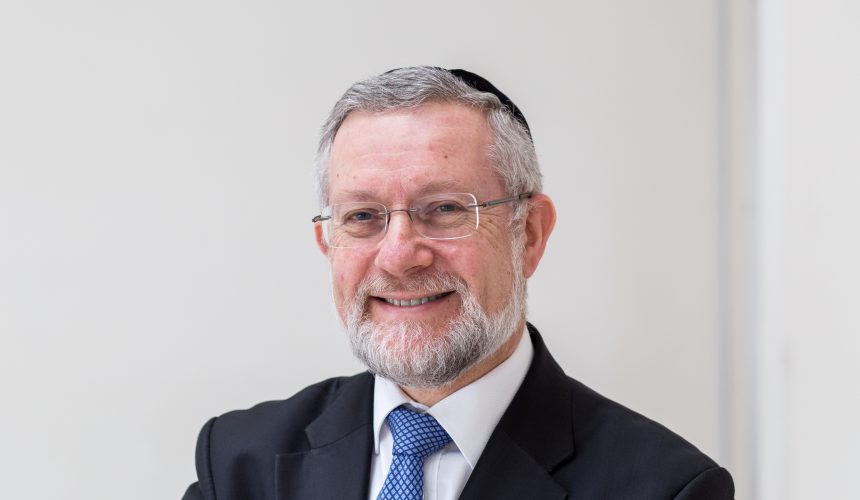A KING’S VISIT This week King Charles visited Manchester, meeting members of the Heaton Park Synagogue after the Yom Kippur attack that claimed two lives. It was a brief encounter, yet it carried the weight of something larger – the moral presence of a leader standing beside a wounded community. The timing, in the week of Parashat Noach, feels almost providential. The Torah opens with a world unravelling: “The earth was filled with violence (chamas).” G-d’s response is not merely to destroy but to rebuild – to begin again with Noach, “a righteous man in his generation.” Out of chaos...
BERESHIT

LET THERE BE LIGHT Every year, as we begin Bereishit, we stand again before the mystery of creation. The Torah opens not with a commandment, nor with the history of Israel, but with a vision of a universe coming into being through Divine speech: “Vayomer Elokim, Yehi Or — and God said, let there be light.” This week, a new book published in Britain, God: The Science, the Evidence by Michel-Yves Bolloré and Olivier Bonnassies, invites readers to revisit that same mystery through the lens of contemporary science. The authors are not rabbis or theologians but lay thinkers and scientists who draw on...
SUCCOT

TAKING THE ARBA MINIM The Arba Minim are taken every day of Succot, except on Shabbat. Whilst there is nothing intrinsically Shabbat-unfriendly about a Lulav, the rabbis of the Talmud decreed, that just like a shofar, a Lulav and Etrog are not taken on Shabbat. The concern is that individuals may carry their Lulav in the public thoroughfare and thereby break Shabbat. Even though many places now have an Eruv, the restriction on taking the Lulav still applies. The mitzva of taking the Lulav is fulfilled simply by picking up the Lulav and the other species. Nevertheless, there is...
VAYELECH

NEVER STOP WALKING One of the greatest early Chassidic Masters was an individual of outstanding piety and humility, Reb Zusha of Hanipol (1718–1800). He wrote no books, yet his contribution to our spiritual history has been immense through his store of teachings and stories. He once said that he was not worried that on the Day of Judgement they would ask him: “Zusha, why weren’t you like Moses? Zusha, why weren’t you like King David?” “I will reply: ‘I’m not a Moses. I’m not a David.’ But I am worried that they will say to me: ‘Zusha, why were you...
RE’EH

ONE FOR ALL AND ALL FOR ONE “Behold, I set before you this day a blessing and a curse” [Devarim 11:26] The opening words of this week’s parasha have sparked much discussion. A nuance of the Hebrew is lost in translation. The verse begins with Re’eh—“See”—in the singular, as if addressing one person, and then continues lifneichem—“before you”—in the plural, addressing the whole community. Why begin in the singular and end in the plural? One answer is given by the Chatam Sofer, Rabbi Moses Sofer of Pressburg (1762–1839). He teaches that each of us carries responsibility not only for ourselves,...

